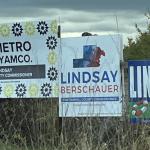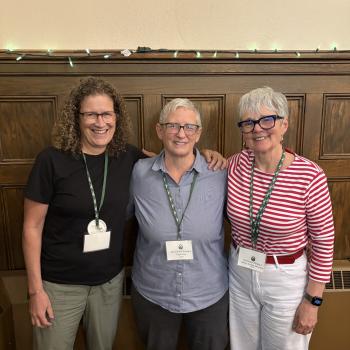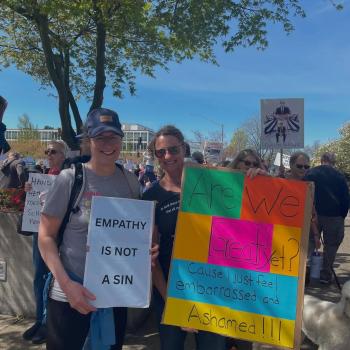This is not a post-mortem about the national election. Goodness knows I’ve read enough of those in the last week, even after I swore off news for a while, wiped several social media apps from my phone, and decided political podcasts only stoked my anxiety. The incessant catastrophizing kept me up at night, worried about our nation’s uncertain future.
In my slow crawl back to the news this week, I read an excellent column in the New York Times, suggesting “If You’re Sure How the Next Four Years Will Play Out, I Promise: You’re Wrong.” Journalist Adam Grant reminds us that humans are lousy at predicting the future (the election results themselves might bear this out), and that none of us know what will happen in a next Trump administration.
We might be feeling what psychologists call “ambiguous loss” about the election, Grant writes, but “Ambiguous loss is not a funeral. It’s a reckoning. Like touching a hot stove, it hurts so we don’t miss its lessons. Feeling devastated about an election is a cue to figure out what went wrong so it doesn’t happen again. A sense of righteous indignation can energize us to stand up for our principles. Anxiety about what comes next can help jolt us out of complacency.”
Point taken.
Hope In a Different Future–And Hard Work
As I look back over the last few years in my home community, I can see how the ambiguous loss of a school board election transformed local politics, jolting people out of complacency, making sure that our city did not vote for a slate of incompetent alt-right board directors again. In the face of an uncertain future, it’s what happened here in the recent past that gives me the most hope for what might happen nationwide.
For the two years after a disastrous election in 2021, community members in my hometown organized, crossing partisan lines to create alliances that led to a different outcome and a board with five of seven new directors in 2023. This happened without wavering on important issues like inclusion, but with considerable outreach to neighbors, letting folks know what was at stake when board directors envisioned a school district that marginalized students of color, queer students, and those with disabilities.
By 2023, when new directors were seated, some damage had already been done. Our school district has been financially devastated by the work of the alt-right board and its ideologically-driven decisions, and it will take a long time for our schools to be vibrant again. But our community stemmed the destruction, created unlikely partnerships, and worked to assure that extremists did not win other local leadership positions, with notable success.
Finding Hope In This Year’s Results
This year, Yamhill County voted 51-45 percent for president-elect Donald Trump, an outlier in very blue Oregon. But the county also voted against re-electing an extremist county commissioner in what was at times a vicious race, given the online insults that seemed endemic on community social media posts, sometimes by the commissioner and her family members.
Our local election also stopped an attempt to seat two more conservative city council members, keeping the city council truly bipartisan and providing a much-needed ballast to what could have been a far-right takeover of city hall.
The results served as a reminder to me that local elections matter, and that in an uncertain future, work in our home communities is one way for progressive Christian values to take hold, forming sturdy roots that might bear fruit in future statewide and national elections.
Going forward, I’m planning to share some of the practical ways people of faith can make a difference in local elections, guided by the principles Jesus teaches in the gospels, with the hope that the future we can’t quite see is one where we all can thrive.













